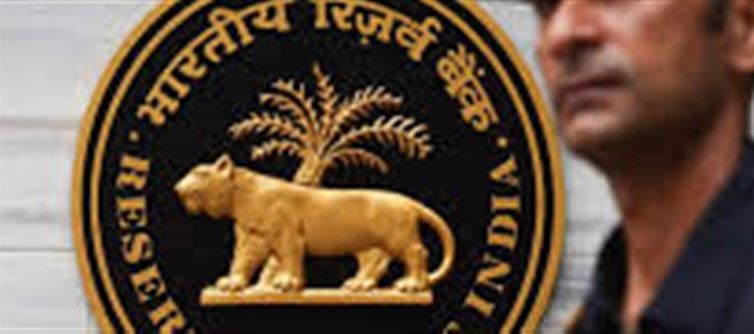
In a significant move, the Reserve bank of India (RBI) has imposed stringent regulatory restrictions on Baghat Urban Co-operative Bank, located in Solan, Himachal Pradesh. This action comes after growing concerns over the bank’s financial stability and operational risks.
Here’s everything you need to know about the RBI's decision and what it means for customers:
1. Withdrawal Limit Imposed: Rs 10,000 per Customer
· Restriction Details: The RBI has set a withdrawal limit of Rs 10,000 per customer. This means that account holders will only be able to withdraw up to Rs 10,000 from their accounts during the period of restriction, regardless of the amount available in their accounts.
· Impact on Customers: For customers who have large balances in their accounts, this withdrawal cap can create significant inconvenience. They will be unable to access their full funds until the RBI lifts the restrictions.
2. Why Did the RBI Take Action?
The RBI’s intervention follows concerns over financial irregularities, capital adequacy, and liquidity issues faced by Baghat Urban Co-operative Bank. These concerns have raised red flags regarding the bank’s ability to meet its financial obligations.
· Financial health Concerns: Banks that face such restrictions typically exhibit signs of weak financial health, which may include insufficient capital reserves, high levels of bad loans, or poor asset-liability management.
· Customer Protection: By imposing these limits, the RBI aims to protect customers' interests and prevent the situation from worsening, ensuring that the bank’s liabilities don’t spiral out of control.
3. What Happens Next for Baghat Urban Co-operative Bank?
· RBI’s Supervision: The bank will now be under closer RBI supervision. The bank will need to improve its financial health and meet regulatory standards to lift the withdrawal restrictions.
· Long-Term Strategy: Depending on the results of RBI’s assessment, Baghat Urban Co-operative bank may need to restructure its operations, improve liquidity, or raise additional capital to stabilize.
4. Can customers Access Their Full Deposits?
· Limited Access: customers can only access Rs 10,000 of their total deposit at any given time. However, if there are emergency needs, they may still be able to petition the bank or RBI for higher withdrawals in specific cases.
· Full Withdrawals Not Allowed: For now, full withdrawals are restricted. customers with large sums will need to plan accordingly until the withdrawal limit is relaxed.
5. How Does This Affect Other Co-operative Banks?
This action by the RBI may raise concerns among customers of other co-operative banks in the region and beyond. The RBI’s scrutiny could lead to:
· Increased Vigilance: Other co-operative banks may face closer scrutiny from the RBI to ensure they are in compliance with all regulatory norms, particularly around capital adequacy and liquidity management.
· Customer Confidence: The action could affect public perception of the safety and stability of co-operative banks. customers may seek to shift funds to larger, well-established banks or explore alternative banking options.
6. How Should customers Respond?
· Stay Informed: customers of Baghat Urban Co-operative bank should stay updated on any official announcements from the RBI or the bank regarding the status of the restrictions.
· Plan for Limited Access: customers who need larger withdrawals should plan ahead and make smaller withdrawals (up to Rs 10,000) as needed, understanding that they will have limited access to their funds for now.
· Consider Other Options: If necessary, customers may consider transferring their funds to other, more stable financial institutions to avoid further inconvenience.
7. Final Thoughts: Why It Matters
The RBI’s decision to restrict withdrawals at Baghat Urban Co-operative Bank serves as a reminder of the importance of financial prudence and regulatory oversight. customers must stay alert to such developments and make informed decisions to safeguard their savings. For now, the focus will be on how quickly the bank can recover its financial health and how soon the withdrawal restrictions can be lifted.
The ongoing action by the RBI underscores its commitment to maintaining financial stability in India’s banking sector, especially in the case of co-operative banks, which are often more vulnerable to operational issues compared to larger commercial banks
Disclaimer:
The views and opinions expressed in this article are those of the author and do not necessarily reflect the official policy or position of any agency, organization, employer, or company. All information provided is for general informational purposes only. While every effort has been made to ensure accuracy, we make no representations or warranties of any kind, express or implied, about the completeness, reliability, or suitability of the information contained herein. Readers are advised to verify facts and seek professional advice where necessary. Any reliance placed on such information is strictly at the reader’s own risk..jpg)




 click and follow Indiaherald WhatsApp channel
click and follow Indiaherald WhatsApp channel